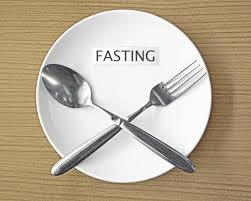Written by; Rory Scott (Accredited Exercise Physiologist)
There are many varied opinions on the best nutritional strategy, especially in this age of information overload. This can make it difficult to determine what is good, bad, right, and wrong.
As such you probably have regular conversations with friends who tell you that you must try what they are doing with their nutrition and that they swear by it! So on the occasion that you are convinced to take their advice and it doesn’t work for you, frustration sets in and you are back to square one. Being able to discern the available information is difficult, with different theories appearing every year.
Fasting has become part of the mainstream for nutritional advice; and is another consideration for you to add to the streams of recommendations you may have already received..
The purported benefits of fasting are many – as always it’s good review the research available to help you decide where fasting fits into your health goals.
Fasting can be beneficial for weight loss, as you would expect if you are reducing your calorie intake. Some research has found alternate day fasting can result in as much as a 2.5% decrease in body weight and up to a 4% decrease in fat mass (Heilbronn et al, 2005). Alternate day fasting has also been shown to decrease body weight by up to 5.6kg over an 8- week period (Varady et al, 2009).
Fasting helps achieve weight loss through many different mechanisms. For example resting energy expenditure can increase significantly (Zauner et al, 2000) when fasting, which leads to a greater utilisation of calories when not exercising.
The rate of fat breakdown increases with fasting which is stimulated by our nervous system. Research has shown a significant increase in fat tissue norepinephrine (Patel et al, 2002) which is a hormone responsible for readying the body for action. This could be the mechanism behind the increased fat breakdown seen during fasting and it is interesting to note that fat tissue is the only part of the body to experience this significant hormone change (Patel et al, 2002).
Fasting can have an impact on different hormones in the body which not only contributes to weight loss but also has an improvement in inflammatory makers (Johnson et al, 2007) and heart health (Varady et al, 2009). Insulin, for example, is a hormone which promotes the absorption of sugar into fat cells and in high levels can decrease the production of growth hormone. Growth hormone is important in the growth and repair of cells which is very important for optimal human function. Research has found that fasting can decrease insulin levels by up to 57% (Heilbronn et al, 2005) which can aide weight loss, inflammation and heart health.

Growth hormone during fasting can be enhanced and has been shown to increase in its frequency of release and peak volume of release (Ho et al, 1988) and there is documentation of a 2- fold increase in the amount and frequency of growth hormone being released (Hartman et al, 1992).
So, from the research, we can see that there is evidence to support the use of fasting for various improvements of the human body, least of all being weight loss.
Increasing energy expenditure, reducing insulin levels and increasing growth hormone levels are great changes for the body when fasting. It is important to note that the potential mechanism for fat loss is due to the increase of epinephrine which increases anxiety and restlessness in the brain.
From the available evidence I believe there is merit to including fasting in your diet. I would practice first by trying to skip a meal to condition your hunger responses for longer periods of no food intake. Based on the fact there could be a potential stress hormone mechanism behind the weight loss associated with fasting, I would recommend trying alternate day fasting.
The approaches to fasting which you could take include fasting for 16 hours and consuming food for an 8 hour period or not eating from dinner to dinner. If you have fasted until dinner and feel like you could keep going I would recommend going until the next morning.
As always there is not a one size fits all approach to any dietary intervention however fasting is something to strongly consider.
References;
- Hartman ML, Veldhuis JD, Johnson ML, Lee MM, Alberti KG, Smojlik E, Thorner MO. 1992. Augmented growth hormone (GH) secretory burst frequency and amplitude mediate enhanced GH secretion during a two- day fast in normal men. J Clin Endocrinol Metab. Apr;74(4):757-65.
- Heilbronn LK, Smith SR, Martin CK, Anton SD, Ravussin E. 2005. Alternate- day fasting in nonobese subjects: effects on body weight, body composition, and energy metabolism. Am J Clin Nutr Jan;81(1):69-73.
- Johnson JB, Summer W, Cutler RG, Martin B, Hyun DH, Dixit VD, Pearson M, Nassar M, Telljohann R, Maudsley S, Carlson O, John S, Laub DR, Mattson MP. 2007. Alternate day calorie restriction improves clinical findings and reduces markers of oxidative stress and inflammation in overweight adults with moderate asthma. Free Radic Biol Med. Mar 1;42(5):665-74.
- Patel JN, Coppack SW, Goldstein DS, Miles JM, Eisenhofer G. 2002. Norepinephrine spillover from human adipose tissue before and after a 72- hour fast. J Clin Endocrinol Metab. Jul;87(7):3373-7.
- Varady KA, Bhutani S, Church EC, Klempel MC. 2009. Short- term modified alternate- day fasting: a novel dietary strategy for weight loss and cardioprotection in obese adults. Am J Clin Nutr. Nov;90(5):1138-43
- Zauner C, Schneeweiss B, Kranz A, Madi C, Ratheiser K, Kramer L, Roth E, Schneider B, Lenz K. 2000. Resting energy expenditure in short- term starvation is increased as a result of an increase in serum norepinephrine. Am J Clin Nutr Jun;71(6):1511-5.
